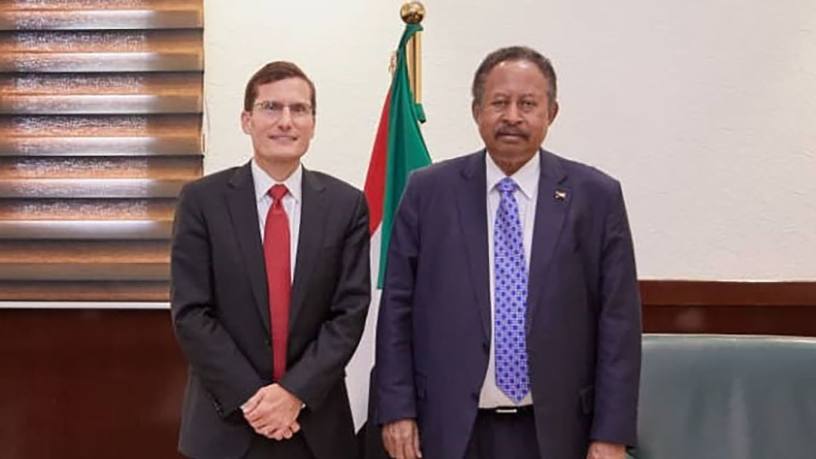Payments provider Visa plans to set up a local presence in Sudan as the country’s transitional government pushes to digitise and reintegrate the economy, after decades of sanctions and isolation under ousted former president Omar al-Bashir.
The San Francisco-based company is working with eight financial institutions in the African country, including United Capital Bank, which issued the first Sudanese Visa card earlier this year. In December 2020, the US rescinded Sudan’s 27-year listing as a state sponsor of terror, bringing an end to long-running stringent export and investment restrictions.
“Sudan is a fast-growing, emerging economy that is clearly undergoing many positive changes since its reintegration,” says Andrew Torre, Visa’s regional president for the central and eastern Europe, the Middle East and Africa region.
“When we look at these changes and the potential they offer, we are extremely optimistic about Sudan’s transformation and future,” he adds. Visa has also reached an agreement with Zain Sudan, a mobile telecom operator, as it seeks to leverage Sudan’s 76% mobile penetration rate and appetite for digital payments.
Sudan is a fast-growing, emerging economy that is clearly undergoing many positive changes since its reintegration
After “positive discussions” with government partners and the private sector, Mr Torre says building a local presence “is the natural next step” to advance digital payments in the African country. Visa currently supports 70 million merchants in more than 200 countries worldwide.
Sudan’s transitional government, which was jointly formed by civilian and military leaders after Mr al-Bashir was deposed in 2019, has committed to liberalise the Sudanese economy as part of a $56bn debt relief programme agreed with the International Monetary Fund in June this year.
“There are several positive steps being taken by the government that are helping to set the foundation,” says Mr Torre. He highlights that the recent decision to float the Sudanese pound led to around $500m flowing into the formal financial system in less than four weeks.
Sudanese prime minister Abdalla Hamdok, an economist who was appointed by protest leaders in 2019, has hailed the recent Visa card launch as a symbol of Sudan’s reintegration into the global economy. His transitional military–civilian power-sharing government has been trying to pull Sudan out of a deep economic crisis, which saw the country’s gross domestic product fall from $64.5bn to $32.3bn between 2015 and 2019, according to World Bank data.
“A lot of legislative actions have been made by the transitional government to accommodate the current foreign investment and international business development in Sudan,” explains Yassir Ali, a managing partner at AIH Law Firm, based in the Sudanese capital, Khartoum.
The transitional government enacted a new law in April to develop a dual-banking system, which will permit conventional banking alongside the current Islamic banking system. It has also passed a new investment act and the country’s first public–private partnership law, aimed at creating a business-friendly environment to attract foreign investors.
A version of this article first appeared in fDi Intelligence.












